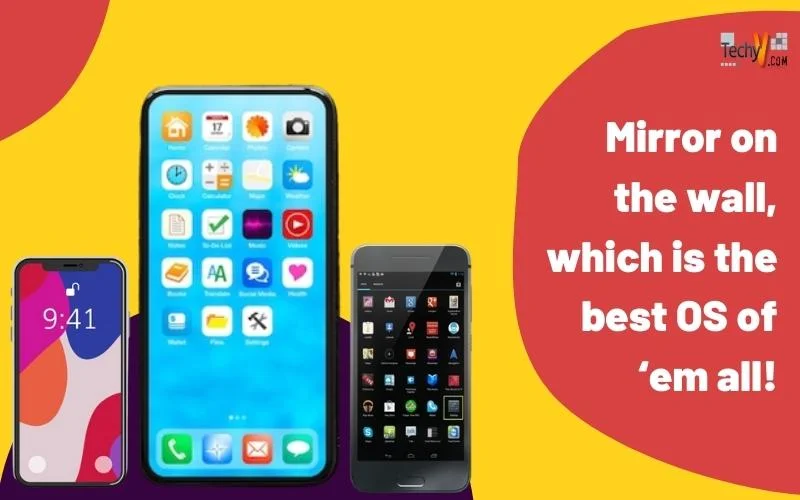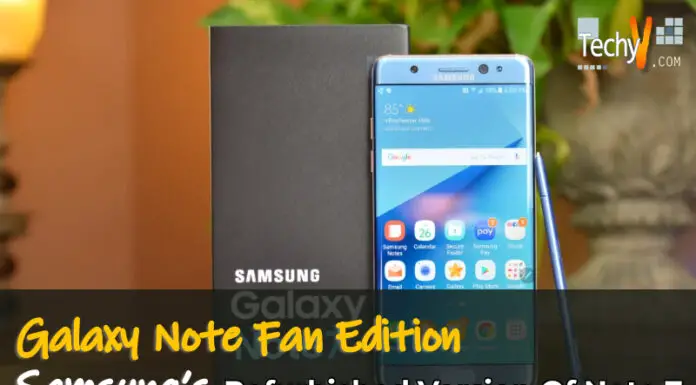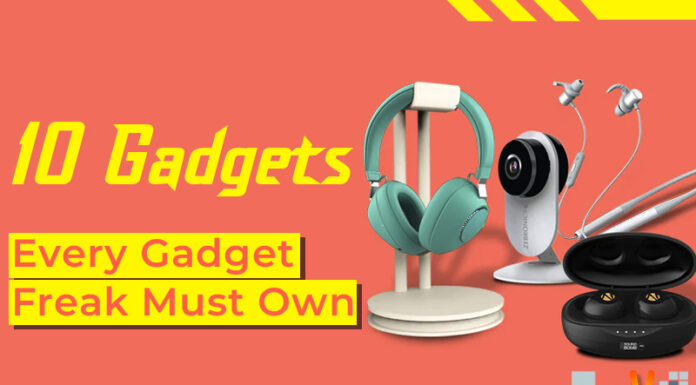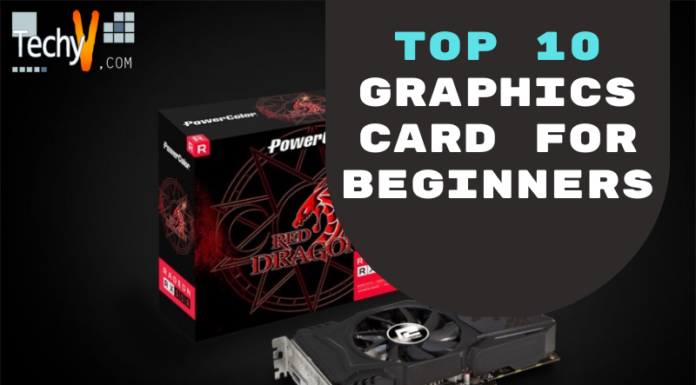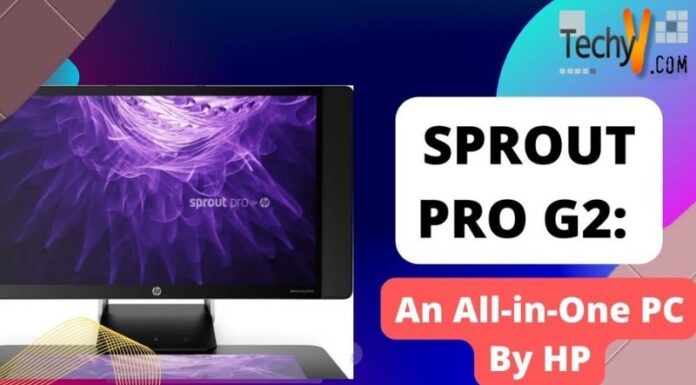Mirror on the wall, which is the best OS of them all!
Markets are flooded with all sorts of hand-held cell phones and gadgets which are really hard to spell, so I’ll try to skip them all together! If you are a mobile phone enthusiast, there must be a time when you’ve asked yourself, which one’s the best? Better still, if you’re a geek, you must have asked which one is the best based on the Operating System it uses?
Mobile OS 101; which uses which? The most readily available OS in the market are Symbian, Apple IOS, Google’s Android, Microsoft’s Window-based, BlackBerry OS, and others which we’ll touch briefly. The Symbian platform is used mostly by Nokia. Other companies with symbian based mobile phones include Sony Ericsson and others which lack popularity like, Sharp, Fujitsu and BenQ. Going to the OS which has the most buzz nowadays; Apple’s IOS (iOSis Apple’s mobile Operating System). Developed originally for the iPhone, it has since been shipped on the iPod Touch, iPad, and Apple TV as well. Apple does not permit the OS to run on third-party hardware. Next up we have the OS which is running over the Apple IOS; the Google’s Android. Android is a mobile Operating System initially developed by Android Inc., a firm purchased by Google, 5 years back. Many mobile phone companies are using Android as their OS; Motorola, HTC and Ericsson are the main ones. BlackBerry OS is a proprietary mobile Operating System, developed by Research in Motion for its BlackBerry line of smart phone handheld devices. Last but not the least, we have Microsoft’s Window-based phones. Yes, yes, everyone knows about them, but what most people don’t know is that they might steal away the mobile phone market of the future once they launch their Windows 7 platform!
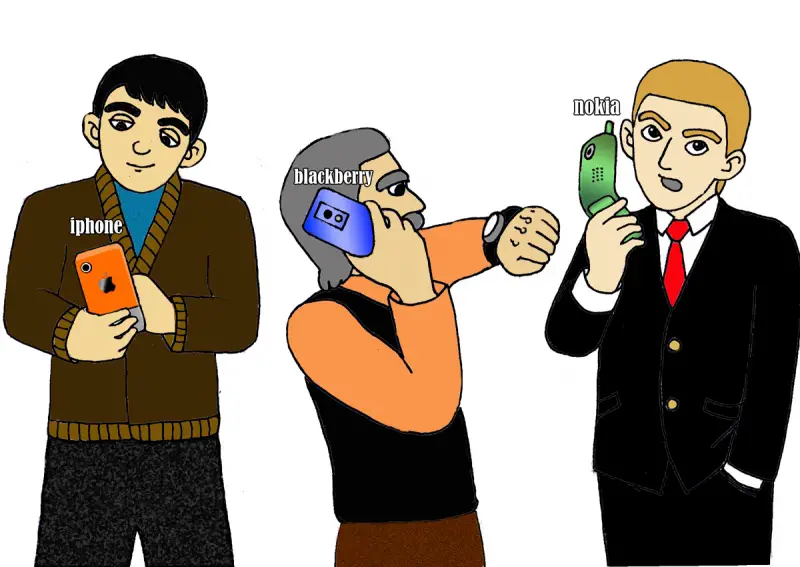
The Symbian OS is currently the most owned/marketed OS with 40% market share worldwide as indicated by the 2010 sales. But it’s not the favorite in the American market. The Android and Apple’s IOS are catching up fast with 17.2% and 14.2% respectively. The thing to notice is that Symbian platform has lost its market share from 50% in 2008 to 40% in 2010 so you can well imagine what the future holds. RIM BlackBerry also has a respectable market share of 18.2% which is specially designed for business. Windows and other platforms have a negligible market share.
Preference of an OS depends on what you have in mind. Are you a businessman, an Application developer, a teenager who just likes messaging, or a person who wants hassle-free mobile phone usage? In contrast to Linux, Windows Mobile comes as ready-to-run software. If its additional functionality you are looking for, just download additional supportive software. But mind you, the rigid OS cannot be meddled with. Symbians provide you with what you need, whether it’s managing your schedule, contacts, notes, to-do lists and messages, everything is installed in the device. Synchronize information with a desktop computer, you don’t have to be a rocket scientist to do that, just use a cable and Active Sync to update the information. Now comes the interesting bit, bare-bone, out of the box, Apple IOS and the Android. But what you actually get is countless applications ready to roll on your smart phone. Now this is a consumer perspective, but what if you’re a software developer? The iPhone is easier to develop than other Operating Systems, but on the downside you have to compete with thousands of other people working on the same application. However, the ease of Application development on an Apple cannot be over-looked; after all it’s a package of ‘hardware and software made for each other.’ Apple claims that its software is made for its hardware. No denying in that fact and it is due to this close integration that one can take advantage of iPhone hardware features such as Multi-touch, accelerometer, accelerated graphics, GPS, and the 3-axis gyro.
Most of Apple’s claims are quite true but what about the Android on the subject of Application development and normal usage? Android is on equal footing in terms of these features. Some might argue that iPhone touch screen is a slightly better but that’s another debate-able issue. Apple has been guarding the gates of application development and picking up fights with almost everyone on the issue of what will run on Steve Job’s iPhone. The big wild card to hit the mobile Operating System market this year: enter the Android. Open source OS at its best; any developer can access its source code and build (and market) apps without a license from Google. Secondly, it is quite easy to get your application on the Android market. These are some of the reasons why Android has moved to replace the iPhone, reducing the market share of Apple’s Operating System in USA (43.6% vs. 26.2%), despite the release of the iPhone 4. Now this is big, news like these tell you what the trends are and what the future holds for your mobile OS.
Let’s not neglect the Windows OS altogether. With mobile companies like HTC and Motorola, jumping on the Windows 7 boat, one might see a change of trend. Currently, if you’re a nervous cell phone user who doesn’t like to experiment much, you might consider buying a Windows-based cell phone. But wait a second; why not wait for Windows 7 to hit the market?
Launch of BlackBerry OS 6.0 is in the air, but not much is known about it. Rumors suggest that it includes things like: Camera and focus features, YouTube support, WiFi USB support, Social media features, Bar code scanning features, track pad gestures, Tabbed browsing similar to Safari, and Unified search.
Comparing Android to BlackBerry. If emails are of prime importance to you, and you don’t want to bother with a Gmail account, then a BlackBerry can be a better fit for you than an Android phone. But the safer, superior and better (so far) choice would be an Android phone.



